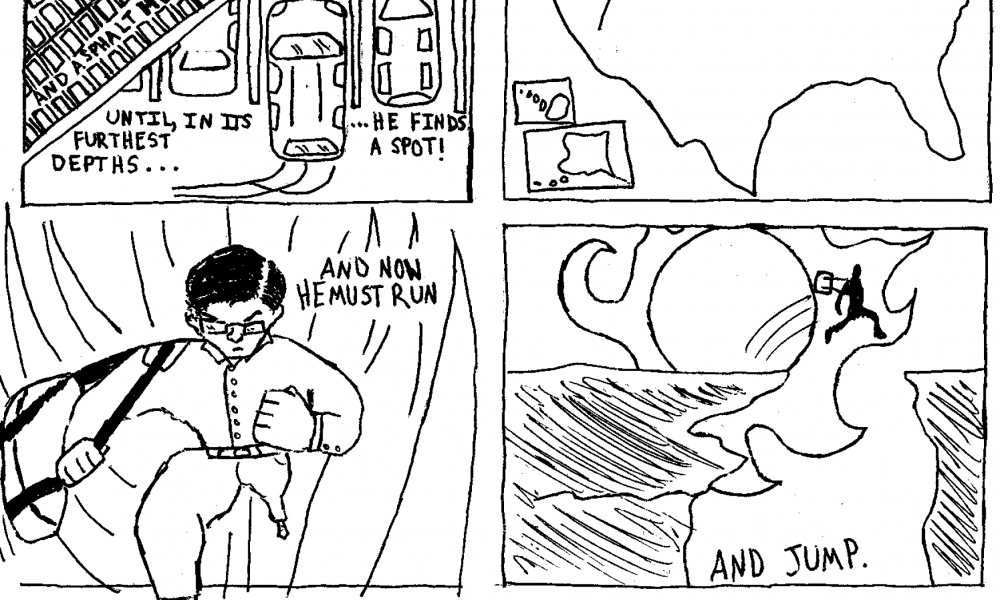
The events unfolding in Ukraine were originally quite hopeful when the people ousted Head of State Viktor Yanukovych, who preferred trade relations with Russia over the EU. Ukraine’s government is similar to France’s in that they are both semi-presidential systems of government–with a president as head of state and a prime minister as head of government. The people of Ukraine preferred the latter and began to protest with hundreds of thousands of people arriving in the perfectly named Independence Square in Kiev. The protests turned violent when their government quickly passed some draconian anti-protesting laws and their police started killing protesters.
On February 20, police snipers killed many protesters, shocking some who were present.
“‘They are just children, these young men,’ said Nikolai Himaylo, a Ukrainian Orthodox priest who blessed the dead, sang a lament, wept, and cursed President Viktor Yanukovych. ‘He who is called the president. He did this. He gave the orders. These boys were shot with bullets in the chest,’” The Guardian reported.
The Ukrainian Prime Minister, Mykola Azarov, resigned and their President fled the country. Crimea is a very important region for Russia and amidst this Ukrainian upheaval, they invaded the region and have been there since. The Russian perspective is that there are people who are ethnically Russian in the area they want to protect the lease of the port in Sevastopol they use for their Black Sea Fleet. And now that Russia has invaded, the world is looking to the United States to respond.
Something important to remember right from the start is that sovereignty is meaningless if you do not have nuclear weapons and a seat on the Security Council. Did Iraq have sovereignty when the United States invaded in 2003? Did Cyprus have sovereignty when Turkey invaded in 1974? The answer is no because sovereignty is an illusion and so is the rule of law. There’s tension in the United Nations between state sovereignty and International Rule of Law. If a state is sovereign, they can legally do whatever they want inside of their own borders without foreign interference. If France decided tomorrow to kill everyone in Paris, then according to state sovereignty, they would be allowed to do so without worry of, for example, German interference. There are also suggestions referred to as the International Law, which says you cannot kill everyone in Paris just because you are sovereign. If that situation were named genocide in the United Nations, action would be required to stop it. But wouldn’t that infringe upon France’s sovereignty? Is there rule of law or is there sovereignty? The answer is that it depends on which countries are involved. More importantly, is having sovereignty more important than having International Law? These are questions that many political scientists and philosophers have been thinking about since we’ve become such a globalized society.
Considering what is referred to as International Law, it must be noted that they are not laws as we are used to them. If I were to go murder a person, I would be breaking an American law and I would be punished through the American judicial process. However, International Laws are guidelines that nations follow when it works for their current agenda or if a more powerful state forces them to. The United Nations is not a government and has no authority over any of its member states and so a state cannot be punished by breaking an international law. The only means of punishment would have to come from fellow member states through shaming, sanctions or an act of war. The United Nations has certainly been trying to correct this, however, as they established the International Criminal Court to try individuals for several types of globally recognized crimes. The problem, once again, is that the United Nations doesn’t have the authority, because of state sovereignty, to go out and arrest people like Joseph Kony of Uganda.
When the United States invaded Iraq in 2003, Russia urged for diplomacy in the situation. And now that Russia has invaded Ukraine, the United States is urging for diplomacy. Disregarding the morality of invading anyone, both countries have taken turns vouching for state sovereignty and then, international law.
For the United States, international law allowed them to invade Iraq because Saddam Hussein was a murderer of his own people but Russia was vouching against the violation of Iraq’s sovereignty. And it’s vice versa for the Russian invasion of Ukraine.
It comes down to this: if you have a nuclear weapon, you have sovereignty, which is also why so many states were concerned with Iran researching nuclear capabilities – they don’t want a country with a negative disposition to the West having nuclear weapons. It’s also worth noting that Japan essentially has sovereignty because if a nuclear attack were to happen even near Japan and not actually on the country itself, we would find that they would quickly develop their own in defense.
Over the last 70 years, since the end of World War II, the entirety of Russia and the United States’ foreign relations with one another can be summed up best as the two states trying their best to not fight one another. We’ve all heard stories of how the world nearly ended several times during the Cold War but in the end, cooler heads prevailed. It’s not in either state’s, or any state’s, best interest for Russia and the United States to enter a direct armed conflict with one another. There have been plenty of proxy wars but a direct war with one another would be devastating in every sense of the word. As there are few, if any, states willing and able to compete with Russia (Germany may publicly shame Russia but they get most of their oil from Russia and wouldn’t risk destroying their own economy over sanctions with Ukraine, a country they have essentially no trade with), the world looks to the United States to respond to Russia’s invasion.
So what solutions can the United States provide? There are really only three possible responses: shaming, sanctions or negotiations. If the United States were to enter this with an armed response, we could very likely see the start of a war that could leave the world in a man-made winter.
Since the advent of nuclear weapons, two states with nuclear weapons have fought each other less than five times out of the over 200 skirmishes, conflicts and wars that have occurred since World War II.
If the United States and Russia were to battle each other with restraint, it would set a precedent for future confrontations. As of right now, nuclear weapons are costly and unusable. Their primary use is deterrence; however, if two nuclear armed states can battle without the use of them, it would bring into question the validity of even that use.
The United States has no significant trade policies with Ukraine because they get their valuable resources elsewhere. So while helping a state that seeks democracy, or better representation with a democracy, to achieve that should be in everyone’s best interest, from recent history, we can see that the United States is hesitant to help states in which there is nothing for them to be gained. Rwanda, Syria, Holodomor (an event in Ukraine), and Darfur (in Sudan) are all examples of this. Many states are hesitant to call any specific event, like the genocide in Darfur, a “genocide” because that would invoke the Genocide Convention and require member states to act upon it. So one will find that most states just ignore the genocide until it’s over. As with Israel and Egypt, we may see a closed door negotiation where the United States simply pays off the two sides.
If the people of Crimea vote on a referendum to join Russia without Russia’s presence in the region, the vote would have legitimacy. However, as the referendum scheduled for March 16 comes with a Russian presence, the results will be questionable. It would be comparable to Canada invading Maine and then Maine holding a referendum to join Canada.
In the end, the world is with Ukraine right now and we’d all like to see a peaceful resolution with Ukrainian democracy. Democracy is one of mankind’s most beautiful creations and some Ukrainians have died for a voice in their government. Russia has taken advantage of a state in turmoil and must be condemned for it. They need the world’s support right now and words alone won’t be enough – sanctions and/or negotiations must occur if we want a diplomatic solution with Ukrainian control of Crimea.



